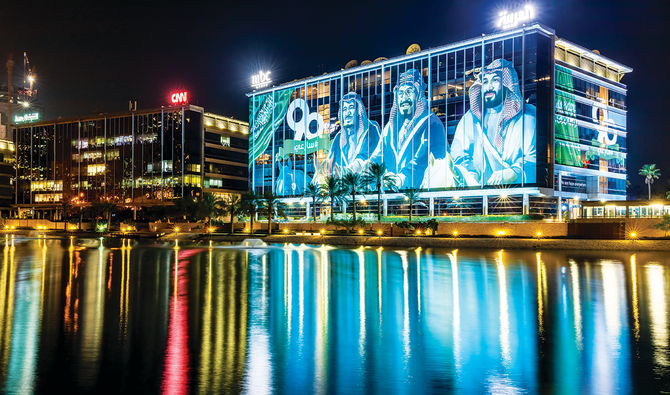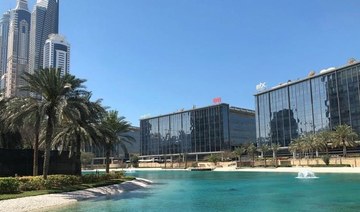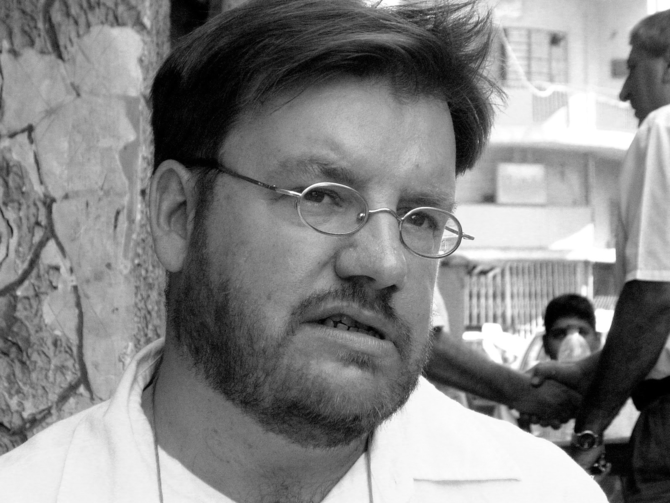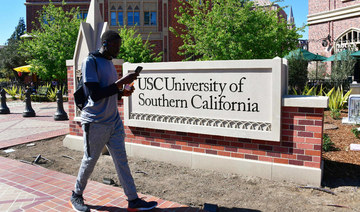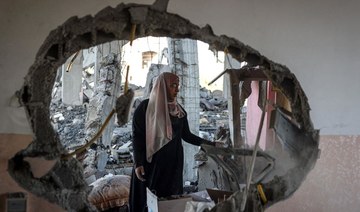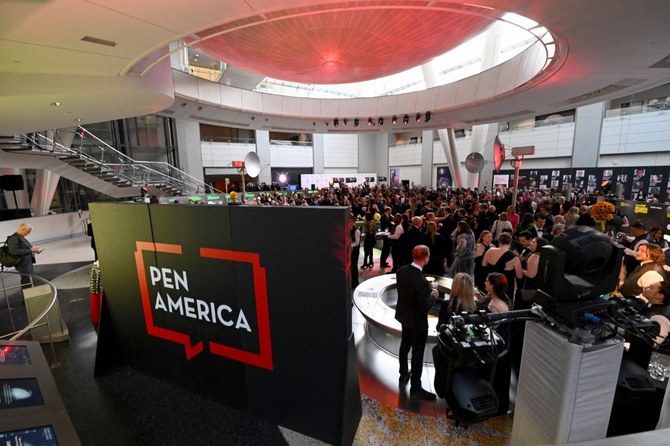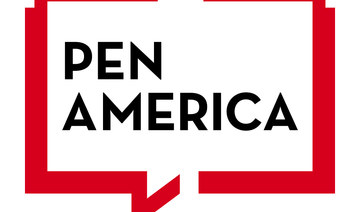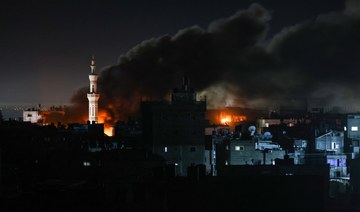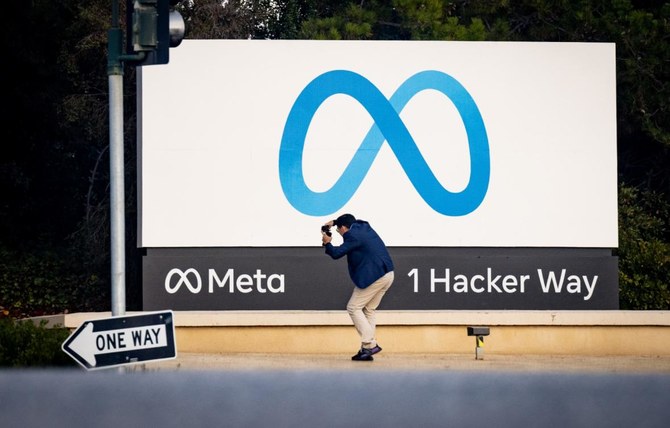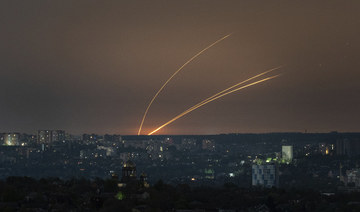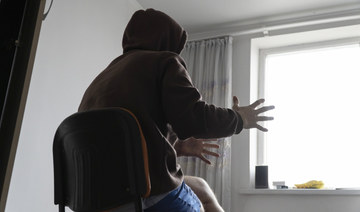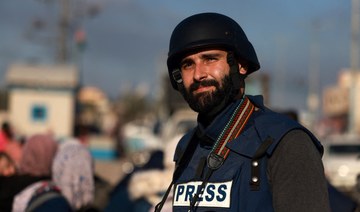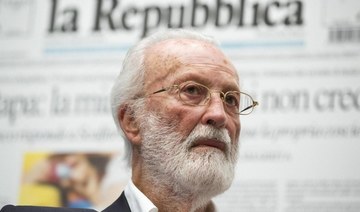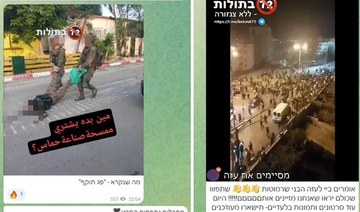LONDON: For Marc Antoine d’Halluin, the new chief executive officer of the Middle East Broadcasting Center (MBC GROUP), premium content is king — especially when it came to the group’s upgraded streaming platform Shahid VIP.
“The volume of what we’re able to put on Shahid VIP is unique and I think the market discovered this at the same time that we were able to push some extremely strong content across our various channels,” the French native told Arab News in an exclusive interview.
Having taken over the reins of the company in January 2020, d’Halluin’s nine-month tenure has coincided with one of the most tumultuous times in history — but one of the most promising ones for media platforms.
The group’s huge growth has a lot to with d’Halluin’s strategy of taking advantage of the unprecedented position of having millions of consumers stranded at home due to the coronavirus with little to do but binge-watch television.
The lockdown, which was enforced months before the region’s highest media-consuming month of Ramadan, provided an opportunity to roll out the refurbished Video-On-Demand (AVOD & SVOD) streaming platform — a fine-tuned and state-of-the-art version of its predecessors Shahid and Shahid Plus — in a carefully coordinated marketing effort.
This position catapulted the platform’s paid customer base from a mere 100,000 subscribers in January 2020 to 1.4 million in April/May 2020 — that’s in less than three months.
“We were able to add other dimensions such as, for example, the availability to access our channels in the OTT (over-the-top) space that is part of the SVOD subscription, which of course provides our subscribers with the convenience of being able to watch our channels wherever they want, the ability to catch up as well as to access all our exclusive original content” d’Halluin said. OTT refers to media that is offered directly to viewers via the internet.
While lockdown restrictions have eased in most areas of the world and people are opting to stay out instead of cooped up indoors, the CEO explained that this is just the beginning of the journey.
“We have a multi-year business plan and we are expecting to reach 2 million subscribers by mid-2022, 5 million in four years from now, and to go beyond this target inside the region. We will also be aggressively pursuing growth of Shahid VIP subscribers outside the region,” he said. One of the key points of the plan is the recently launched English interface that allows MBC GROUP to tap into the US, Canadian and European markets.
Not only is pre-existing premium content crucial to retain subscribers and add new ones, d’Halluin explained, but so is producing new and exciting shows that resonate across the region.
“We like to believe that we are content innovators showing openness and tolerance, and I think television, and media in general, play a key role in showing important, positive aspects and society evolutions in the MENA region, so we have the intention of keeping that editorial line,” he said.

Marc Antoine d’Halluin. (Supplied)
“We are on our way to deliver such shows as our own ‘House of Cards,’ and there is going to be maybe three or four of them delivered next year and most of them are essentially high end dramas produced in-house by MBC STUDIOS but some outside producers also contribute some incredible quality,” he said. He added: “We’re proud to work with the very best producers in the region, upping their game to deliver more quality and more diverse storylines that you can expect to see inside Shahid VIP and on our TV channels.”
Without being able to divulge too much information about these shows, d’Halluin teased that one of them would be a Narcos-esque one — referring to the Netflix hit that chronicles the rise of the cocaine trade in Colombia and the gripping real-life stories of drug kingpins of the late 1980s, most notably Pablo Escobar. “We’ll soon be revealing a fiction series, inspired by a real Saudi story, at par with international crime series. It is a story that relates to the region with key roots in the Kingdom and it’s going to be very interesting to see how our subscribers react to it.”
“It will be the biggest premium series ever-produced regionally, the first series of its kind. And we know that our MBC channels and Shahid VIP will soon bring many more of such high-end series of international standard to our audiences.”
A Frenchman in the Mideast
The MBC GROUP CEO relishes the big opportunities and challenges that all countries face within the media sphere.
Coming from a background of working with Sony Pictures Entertainment and other reputed firms, in regions ranging from the UK, Scandinavia and the Middle East, d’Halluin believes this taught him about respecting local dimensions and cultures.
“I’m just glad that the various experiences I’ve had in my life come and bring me the right experience and expertise that I can put in the service of the collective effort at MBC,” he said.
“It’s a very interesting time in the history of the local regional media, which are becoming global at the same time that they are facing formidable global competitors. It’s a very exciting adventure that I’m proud to be a part of as the MBC Group has all it takes to compete very well globally leveraging its 30 years of content excellence and leadership. Working with Sheikh Waleed, our Chairman and with our Board members on our strategy is very inspiring and keeps us very focused.”
Among the changes being witnessed in the region is the February announcement of MBC GROUP opening a new headquarters in Riyadh in parallel to gradually producing more shows in Saudi Arabia.
“The accelerated expansion of MBC GROUP that we witness through the phenomenal growth of the Shahid VIP platform will benefit the production industry of the Kingdom,” he said. “We’re glad to be a local actor in the Kingdom where we are investing a lot in the local talent.”
Among these investments is the MBC ACADEMY, which is an initiative aimed at training, skill-sharpening and fast-tracking young Saudi talent in the content industry, focusing on scriptwriters, directors, producers and actors.
“We want to find new scripts and we see some very promising material coming our way, and MBC ACADEMY is doing a great job at positioning MBC as a part of the young and vibrant Saudi community. And we will soon announce a new initiative in that space.”
Another big move was the announcement of MBC GROUP’s shift to MBC Media Services, an in-house advertising and sales organization, through its partnership with Engineer Holding Group (EHG). EHG will own a minority stake in MBC Media Services. This marks the end of its nearly 17-year relationship with Choueiri Group.
“It was a natural time for us, even though it wasn’t a simple decision to make, but we thought it was important to not only make that decision to bring our advertising sales in-house but, also to connect it deeper with our own market in Saudi, and the way we executed on that dimension was with the partnership with EHG that has, over the years, developed an extremely successful business with Al Arabia Outdoor.”
While MBC GROUP also decided to take a minority stake in Al Arabia Outdoor, d’Halluin explained that the two groups will keep operating separately, with dedicated ad sales teams that will be leveraging each other’s expertise only when relevant.
“Ultimately, what it does is that it will bring us closer to working with the local advertising community in the Kingdom without any intention to change our overall business model which is a pan-regional one with local executions.”
In the meantime, MBC’s focus on production promises exciting times that are yet to come in an ever-changing period. The Frenchman believes that the media giant’s push in original exclusive shows will surprise the region within the next 18 months.
“It’s a very big effort to make sure that the Kingdom keeps a ‘national, pan-regional and global champion’ in terms of a media group that can compete on a global basis with the very large streamers that are now coming into the region, and I think it’s for the benefit of the region, its culture, its production community but also to the benefit of our audiences,” he said.
“MBC has pivoted toward the digital space in a very coordinated way, a powerful way, and I’m glad that we’re on our way but the journey is still very long in front of us.”



